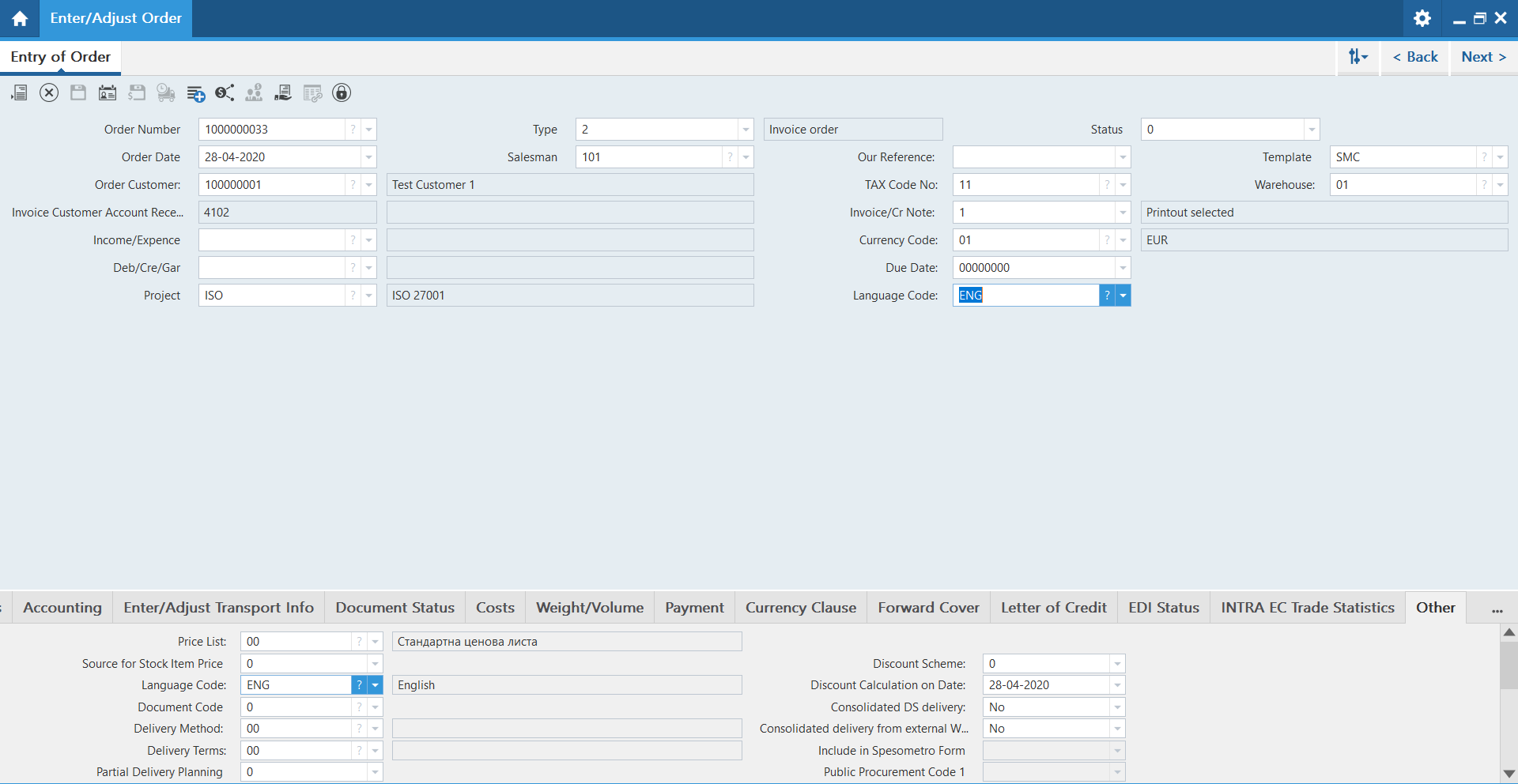Epicor iScala Testing
|
|

Epicor iScala is an Enterprise Resource Planning (ERP) solution designed for small and mid-sized organizations that require scalable and cost-effective business management applications. Epicor iScala is packed with a suite of tools that covers financial management, supply chain operations, manufacturing, project management, and compliance tracking. iScala supports multi-currency, multi-language, and tax regulation.
iScala is suitable for on-premises or cloud hosting. It also integrates with third-party applications like CRM, HRM, and other e-commerce platforms. iScala is prominent worldwide in the manufacturing, distribution, hospitality, pharmaceuticals, and oil and gas industries, which require financial accuracy, supply chain efficiency, and compliance management. We can now take a closer look at Epicor iScala’s functional features.
- Multi-Currency & Multi-Language Support: Epicor iScala allows businesses to work in multiple countries using various currencies and languages.
- Financial Management & Compliance: Offers automated financial statements, tax (VAT, GST, IFRS), and audit-ready documentation.
- Supply Chain & Inventory Management: Streamlines procurement, inventory management, and supplier relationships for operational efficiency.
- Manufacturing & Production Planning: Assists with production scheduling, BOM (Bill of Materials) development, and quality control.
- Project Management & Cost Tracking: Provides tracking from start to finish on the project, including resource sharing, and budget estimates.
- Customer Relationship Management (CRM): Manages sales pipelines, customer interactions, and service requests.
- Business Intelligence & Reporting: Offers live dashboards and analytics to make data-informed decisions.
- Cloud & On-Premises Deployment: Available as on-premises or cloud-based deployment, providing flexibility for implementation in organizations based on their infrastructure capabilities.
- Third-Party Integration & APIs: Works well with third-party software, including HRM, e-commerce, and payroll.
- Security & Role-Based Access Control: Enables data protection via user-specific permissions and adherence to security regulations.
Epicor iScala Testing
Testing Epicor iScala is vital for making sure that all its modules work flawlessly, fulfilling the business needs, and performing as expected in real-time situations. The backbone of the platform consists of several key modules that demand rigorous testing, including manufacturing management, supply chain management (SCM), financial management, customer relationship management (CRM), and human capital management (HCM).
Several types of testing must be conducted for Epicor iScala, including:
- End-to-End (E2E) Testing: E2E testing validates complete business workflows, such as order management, inventory updates, and financial reporting. It makes sure all modules and systems work together seamlessly in real-world scenarios.
- Integration Testing: Integration testing verifies the seamless interaction between Epicor modules, such as CRM and financial systems, and external third-party integrations. This improves smooth data flow and accurate communication across all interconnected components.
- Security Testing: For the protection of sensitive data within Epicor iScala by identifying vulnerabilities and validating access controls. It also maintains compliance with industry security standards and protocols.
- Data Migration Testing: Data migration testing verifies that data transferred from legacy systems to Epicor iScala is accurate and complete. It helps in the proper mapping, transformation, and integrity of the migrated data.
- Cross-Platform Testing: Cross-platform testing validates that Epicor iScala performs consistently across different browsers, devices, and operating systems. This helps in a smooth user experience regardless of the platform used.
Manual and automated testing can both be performed on Epicor iScala, but considering the huge number of scenarios to validate with multiple combinations of browsers and platforms, the internal version has limited efficiency. It is not practical to run things like performance and load tests by hand as well. Using automated testing is, therefore why, a better solution as it should provide complete, repeatable, and efficient validation of all the important features.
E2E Tests for Epicor iScala
End-to-End (E2E) tests for Epicor iScala validate complete business workflows, ensuring seamless operation across interconnected modules like manufacturing, supply chain, and financial management. These tests replicate real-world scenarios, such as processing a customer order from creation to inventory adjustment and final invoicing. E2E testing helps in accurate data flow and communication between modules, verifying that the entire system operates as expected. By identifying potential issues in cross-module interactions, E2E tests help in smooth and reliable business operations.
Optimizing iScala Testing with testRigor
Epicor as a robust and intricate system, poses challenges when relying on traditional automation tools, as they often lead to higher maintenance costs and effort, offering limited benefits for automation. This is where modern AI-enabled automation tools make a significant difference. Among these tools, testRigor stands out with its advanced features and capabilities. Let’s explore how testRigor enhances the effectiveness of End-to-End (E2E) testing for Epicor.
- Natural Language Automation: testRigor allows you to write test scripts in plain English, making it accessible to non-technical team members like manual testers, management, and business analysts. This broadens participation in test creation, increasing test coverage and addressing more scenarios.
-
Stable Element Locators: Instead of using traditional XPath or CSS locators, testRigor identifies elements based on visible text on the screen. This AI-powered approach reduces maintenance effort and lets teams focus on building use cases rather than fixing flaky tests. For example:
click "cart" enter "Peter" into "Section" below "Type" and on the right of "Description"
- Comprehensive Testing: testRigor handles a wide range of testing needs, including web, mobile apps, desktop apps, APIs, visual testing, accessibility testing, all within a single tool.
- Reduced Test Maintenance: By focusing on the end-user perspective and minimizing reliance on locators, testRigor reduces the time spent on test maintenance, especially for rapidly changing products. Read: Decrease Test Maintenance Time by 99.5% with testRigor.
- Seamless Integrations: With built-in integrations for CI/CD tools like Jenkins and CircleCI, test management systems like TestRail, defect trackers like Jira, and communication tools like Slack and Microsoft Teams, testRigor easily fits into your existing workflows.
Now let’s see a sample script written in testRigor for Epicor iScala:

login //Reusable rule click "Enter/Adjust Order" enter stored value "Saved Order Number" into "Order Number" enter stored value "Saved Order Date" into "Order Date" select "ISO" from the dropdown "Project" select "ENG" from the dropdown "Language Code" click "Next"
Above, we created the script for the iScala desktop application. The same script can be executed on a Desktop or Cloud application. No need to change the script. You can easily create functions called Reusable Rules for repeatedly used test steps. And call them in test cases by simply writing their names. The points above highlight just a few of the many powerful features testRigor offers. To discover all its capabilities, explore more details here or sign up for a demo to start your journey.
| Achieve More Than 90% Test Automation | |
| Step by Step Walkthroughs and Help | |
| 14 Day Free Trial, Cancel Anytime |












